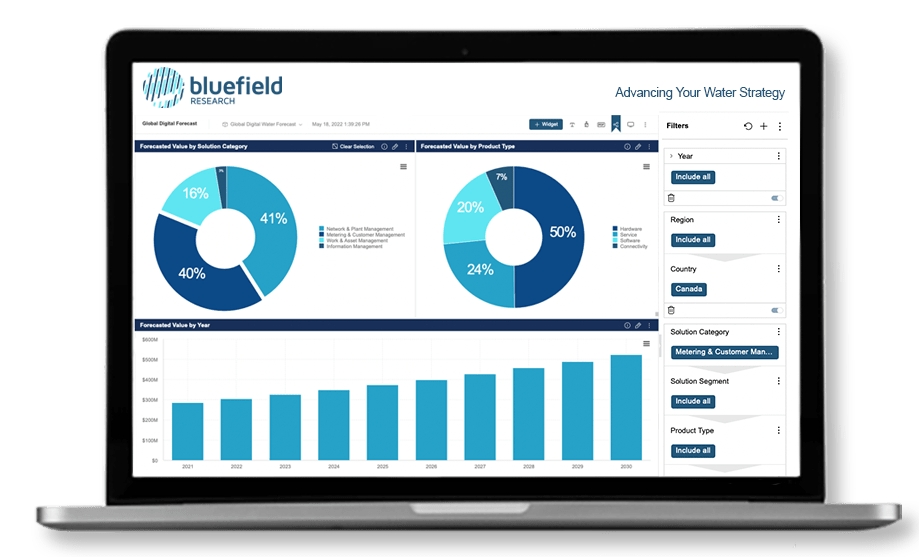Data on over 23,000 Wastewater Treatment Facilities at Your fingertips.
Leveraging available data, Bluefield has built an extensive dataset of publicly owned treatment systems.
This data helps our clients address key questions:
- How many wastewater treatment facilities are in each state?
- What is the flow rate for each wastewater treatment facility in the country?
- How many people are served by these treatment facilities?
- What is the location of the treatment facilities?
How do I access Bluefield’s treatment system data?
Client access to Bluefield’s Data Navigator platform through our Municipal Water Corporate Subscription.
How often is this data updated?
Our data is updated on an annual basis.
Do you include access to the raw data?
Yes. Data seat holders can scroll down to the data table and right click to export the data to CSV.
Become a Data Navigator Seat Holder
Talk to us about data access.

As most people know, Amazon is a very data-driven culture. Having the depth of market intelligence and the ability to dive deep into the Bluefield Navigator has been invaluable to our team. We are able to quickly generate defensible insights that guide our decision-making process.
Worldwide Head of Development, AWS Water
Worldwide Head of Development, AWS Water

